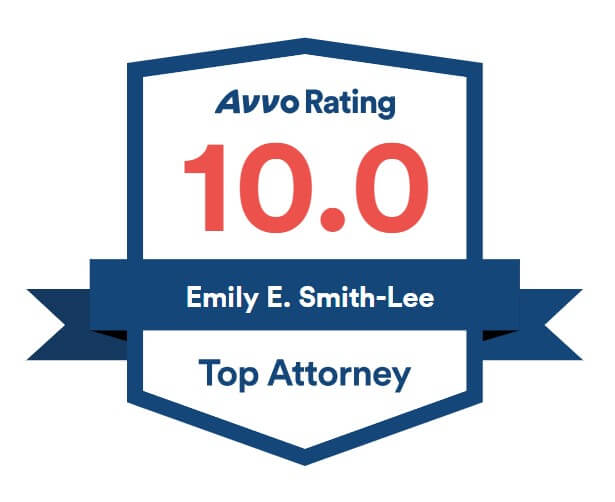Navigating Arbitration: What You Need to Know
The Significance of Arbitration Agreements in Business LawsuitsArbitration is a prevalent form of alternative dispute resolution (ADR) that often appears in business contracts. It is essentially a smaller version of a trial, but conducted by an arbitrator or panel of arbitrators that the parties select. You generally cannot be required to submit to arbitration proceedings unless you have agreed to them. There are some disputes that by law or collective bargaining agreement must be submitted to arbitration.
Distinguishing Arbitration From MediationArbitration and mediation are distinct ADR methods. When you agree to arbitration, you grant someone the authority to make binding decisions, much like a court judge. In contrast, mediation involves a third-party neutral facilitating discussions between disputing parties to reach a voluntary settlement.
Understanding the Arbitration ProcessArbitration proceedings typically follow the rules of the American Arbitration Association (AAA) or those specified by the chosen dispute resolution provider. These rules dictate the extent of available discovery, hearing procedures, and the rules of evidence, which are generally less formal than those in court.
The arbitrator serves as both the judge and jury, setting the ground rules, resolving disputes between parties, presiding over the hearing, and ultimately making the binding decision. Finality of Arbitration AwardsArbitration decisions, known as awards, are conclusive and enforceable. They can be entered in court and enforced similarly to civil judgments, potentially leading to collection actions against the party responsible for payment.
However, the right to appeal an arbitration award is significantly limited. Courts may only modify or vacate an award under specific circumstances, such as bias or exceeding legal authority. While some dispute providers offer internal appeal procedures, the ability to seek a second opinion is generally restricted. Evaluating the Costs of ArbitrationArbitration can entail substantial out-of-pocket expenses, including arbitrator fees, which can range from $300 to $800 per hour. While hourly fees for attorneys may be lower overall, plaintiffs with contingent fee arrangements may find arbitration more expensive.
Should You Agree to Arbitration?When considering arbitration, several factors warrant consideration:
|
We're Here to Help.OR
|
Questions About Arbitration or Dispute Resolution?
Our Solutions Roadmap is a quick and easy way to share the details of what you are facing and receive preliminary feedback from a member of our team. Use the button below to get started- it is 100% confidential and 100% free.
Meet Our Business Attorneys

Emily Smith-Lee is the owner and founder of slnlaw. She is a 1996 graduate of Boston College Law School. She was previously a partner at the Boston office of a large international firm, where she worked for thirteen years with a focus on business litigation. In 2009, she started the firm that since became slnlaw, and has grown it from a solo practice to a five-attorney firm with multiple practice areas. She has been recognized as Massachusetts Superlawyer each year since 2013, and in 2018 earned recognition as one of Massachusetts Lawyers Weekly's Lawyers of the Year. She has written a book on employment law: Rules of the Road, What You Need to Know About Employment Laws in Massachusetts, and helped hundreds of small business owners with contracts, business transactions, employment law advice, business incorporation, and risk management. She has also litigated business disputes in state and federal courts.

Rebecca Rogers: Rebecca is a 2006 graduate of Boston College Law School, and has worked with slnlaw since 2013. She previously worked as an intellectual property litigation attorney for Fish & Richardson in Boston, Massachusetts, and clerked for the Massachusetts Supreme Judicial Court. Rebecca has helped clients with business contracts, employment contracts, and employment law advice.

Jenna Ordway: Jenna is a 2013 graduate of Quinnipiac Law School, and also earned an LLM in Taxation from Boston University in 2015. She has been affiliated with slnlaw since 2011, first as a law clerk and then as an attorney. Jenna has been recognized since 2019 as a "Rising Star" by Massachusetts Superlawyers. Jenna has helped many small business owners with simple and complex business incorporation, contract review, advice and analysis regarding business disputes, employment law advice, and advice about business succession considerations as part of estate planning.

Elijah Bresley: Eli is a 2014 graduate of Seton Hall Law school, and has worked with slnlaw since 2020. He previously worked for a boutique employment law firm outside of Boston, and then for the Labor and Employment department of a large Boston firm. He also spent a year clerking for the judges of the Superior Court in Hartford, Connecticut. Eli has helped our small business clients with employment law advice and defense of employment-related lawsuits in MCAD and state and federal courts.

Sharleen Tinnin: Sharleen is a 2010 graduate of Northeastern University School of Law, and has been with slnlaw since 2023. Prior to joining slnlaw, she worked with King, Tilden, McEttrick & Brink, P.C. on complex civil litigation matters. She previously worked for the United States Department of Justice, and received an "Excellence in Justice" award in 2017. Sharleen has helped clients litigate business disputes in state and federal courts, and advised business owners about succession considerations as part of their estate planning.
How We Can Help
Our experienced legal team can provide invaluable insights and support to help you navigate arbitration effectively, ensuring you make informed decisions that align with your business goals. Give us a call at (781) 784-2322 or use the button below to schedule a free consultation. We look forward to hearing from you!
|
Emily Smith-Lee Rated by Super Lawyers loading ... |
Jenna Ordway
Rated by Super Lawyers loading ... |


